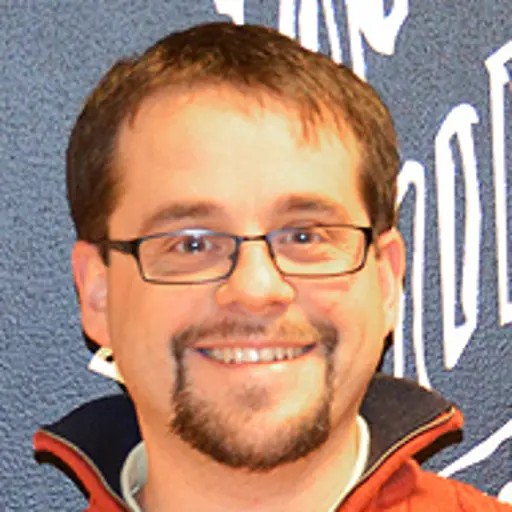The course syllabus contains changes
See changesCourse syllabus adopted 2024-08-15 by Head of Programme (or corresponding).
Overview
- Swedish nameMikromobilitet för en hållbar framtid
- CodeTRA405
- Credits7.5 Credits
- OwnerTRACKS
- Education cycleSecond-cycle
- DepartmentTRACKS
- GradingTH - Pass with distinction (5), Pass with credit (4), Pass (3), Fail
Course round 1
- Teaching language English
- Application code 97165
- Maximum participants40 (at least 10% of the seats are reserved for exchange students)
- Minimum participants8
- Block schedule
- Open for exchange studentsYes
Credit distribution
Module | Sp1 | Sp2 | Sp3 | Sp4 | Summer | Not Sp | Examination dates |
|---|---|---|---|---|---|---|---|
| 0123 Project 7.5 c Grading: TH | 7.5 c |
In programmes
Examiner
 Marco Dozza
Marco Dozza- Full Professor, Vehicle Safety, Mechanics and Maritime Sciences
Eligibility
General entry requirements for bachelor's level (first cycle)Specific entry requirements
Applicants needs to have 90 ECTS at the time for application.English 6/B.
Course specific prerequisites
Letter of motivation.Selection is based on an overall assessment of the applicants' merits and letter of motivation.
Aim
The course provides a platform to work and solve challenging cross-disciplinary authentic problems from different stakeholders in society such as the academy, industry or public institutions. Additionally, the aim is that students from different educational programs practice working efficiently in multidisciplinary development teamsLearning outcomes (after completion of the course the student should be able to)
General learning outcomes for Tracks courses:- be able to critically and creatively identify and/or formulate advanced architectural or engineering problems
- be able to work in multidisciplinary teams and collaborate in teams with different compositions
- show insights about and deal with the impact of architecture and/or engineering solutions in a global, economic, environment and societal context.
- be able to orally and in writing explain and discuss information, problems, methods, design/development processes and solutions
- Classify and compare micromobility vehicles including dynamics and control.
- Explain the opportunities and threats that micromobility vehicles bring to the transport system.
- Elucidate how intelligent communication technologies may support micromobility.
- Apply intelligent communication technologies to facilitate the integration of micromobility solutions in the transport system.
- Compare the interests and responsibilities of different micromobility stakeholders for a safe, efficient, and acceptable integration of micromobility in the transport system.
Content
This course will introduce micromobility solutions and highlight their peculiarities and potential contributions toward a more sustainable transport. The trade-offs among safety, efficiency, and acceptability will be the focus of the course and will offer the opportunity to understand the interplay among user behaviour, vehicle dynamics and control, environmental impact, and infrastructure design. The course will also address life cycle assessment and recycling to evaluate the potential benefits from micromobility to contribute to sustainable transport and livable cities. Visits at and lectures from several stakeholders will help students appreciate the complexity of the problem and the multidisciplinary approach required to solve it. The micromobility project within the course will be an occasion for the student to develop novel intelligent micromobility systems for a safe, efficient, and acceptably integration of micromobility in the transport system. Several activities will be organized to expose the students to different aspects of micromobility.The main topics of this course are:
- Intelligent communication technologies for micromobility
- Dynamics and control of micromobility vehicles
- Micromobility safety
- Human factors in micromobility
- Environmental impact of micromobility solutions
Organisation
The course comprises of- Lectures from the teaching team
- Guest lectures from micromobility stakeholders
- Study visits and micromobility activities
- Exercises
- Micromobility project* (applied team project to be carried out in the Fuse learning environment)
Literature
With input from the teaching team, students will develop the ability to identify and acquire relevant literature throughout their projects. The teachers will provide most of the literature for the course in the form of slide presentations, scientific papers, standards, videos, and/or regulations.Examination including compulsory elements
To pass the course, the student will need to 1) pass the quizzes/exercises (typically on CANVAS and related to individual lectures and visits/activities) and 2) pass the project. To pass the quiz quizzes/exercises, the students will need to correctly answer questions or execute simple tasks within a specific time frame. To pass the project, the students will be required to present their idea, compile a report, and demo the application they developed during the course at an open event at FUSE. The final grade will depend on the outcomes of the quizzes and the project.Upon successful completion, the course awards 7.5 ECTS; 4 ECTS for the project and 3.5 ECTS for the quizzes.
The course examiner may assess individual students in other ways than what is stated above if there are special reasons for doing so, for example if a student has a decision from Chalmers about disability study support.
The course syllabus contains changes
- Changes to course rounds:
- 2024-12-16: Max number of participants Max number of participants 40 added by PA/UOL
[Course round 1] - 2024-08-27: Block Block C added by Tracks
[Course round 1]
- 2024-12-16: Max number of participants Max number of participants 40 added by PA/UOL
- Changes to course:
- 2024-08-14: Prerequisites Prerequisites changed by UOL
Updated course specific prerequisites
- 2024-08-14: Prerequisites Prerequisites changed by UOL